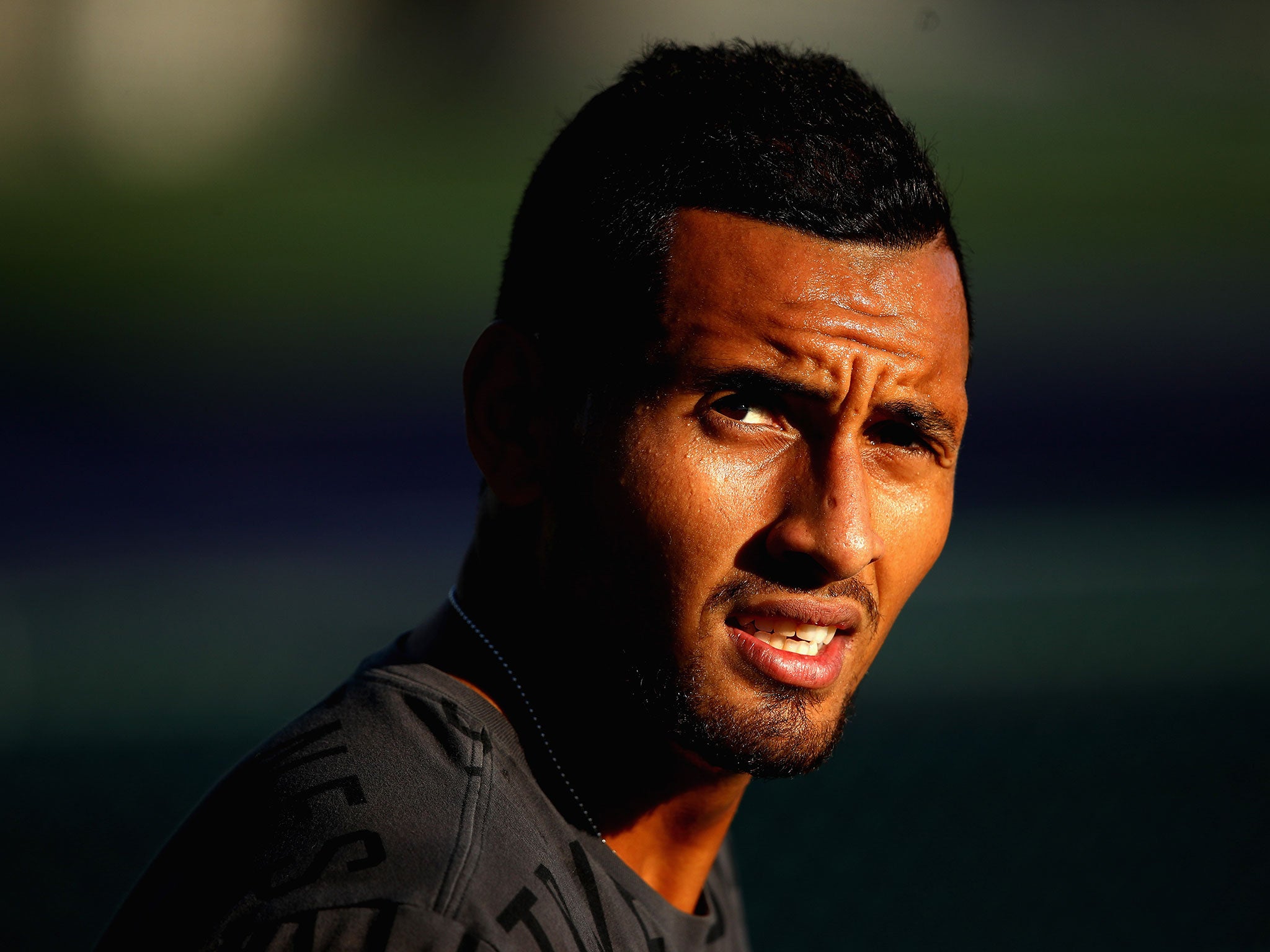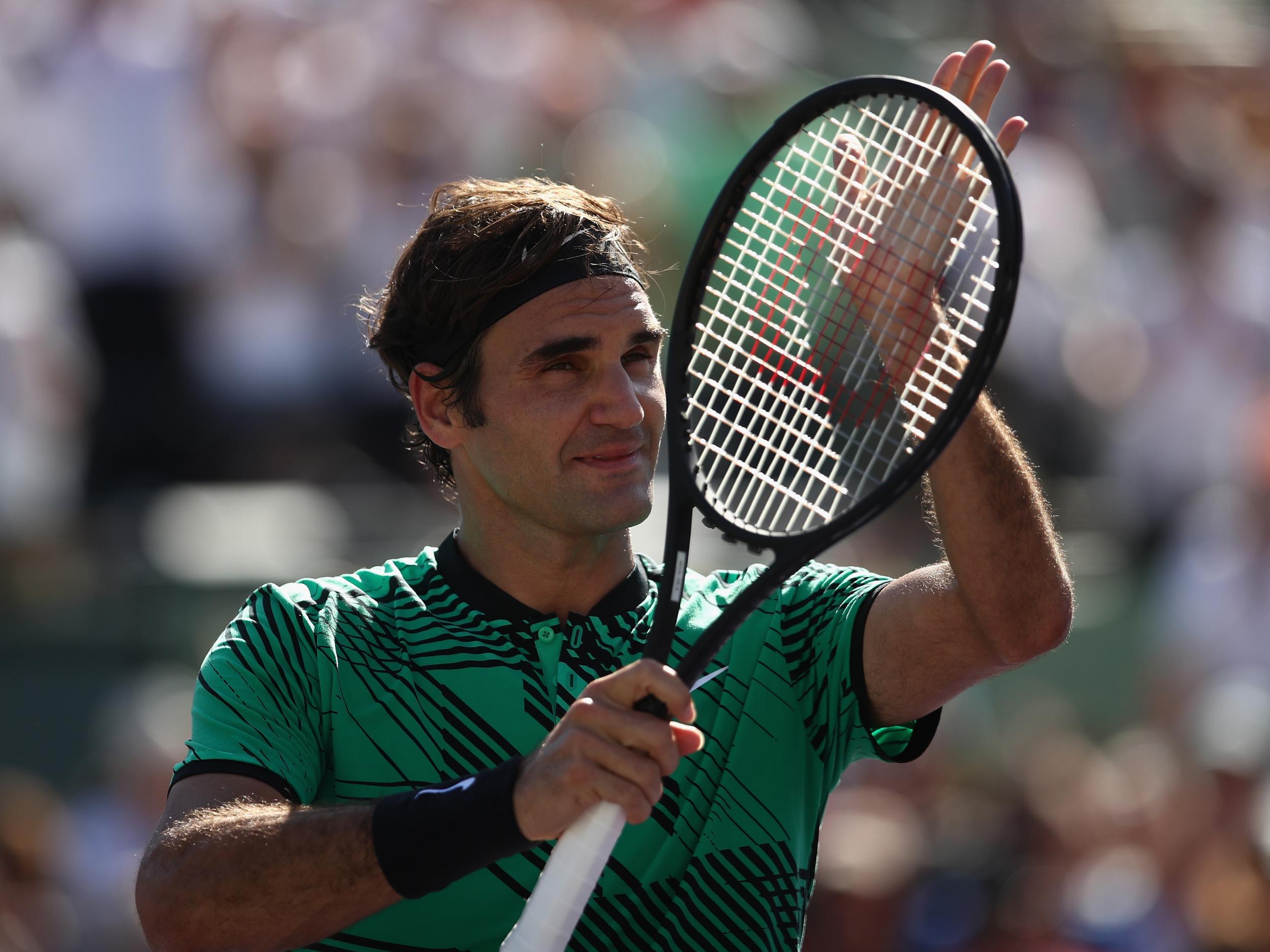Mercurial, wild and impulsive, but could Nick Kyrgios go on to be the next Roger Federer?
Saturday's showdown between the two men may well come to determine the next chapter of the Australian's unpredictable but promising career

Your support helps us to tell the story
From reproductive rights to climate change to Big Tech, The Independent is on the ground when the story is developing. Whether it's investigating the financials of Elon Musk's pro-Trump PAC or producing our latest documentary, 'The A Word', which shines a light on the American women fighting for reproductive rights, we know how important it is to parse out the facts from the messaging.
At such a critical moment in US history, we need reporters on the ground. Your donation allows us to keep sending journalists to speak to both sides of the story.
The Independent is trusted by Americans across the entire political spectrum. And unlike many other quality news outlets, we choose not to lock Americans out of our reporting and analysis with paywalls. We believe quality journalism should be available to everyone, paid for by those who can afford it.
Your support makes all the difference.“I don´t think I ever wanted to be like Roger.” For Nick Kyrgios, the young Australian has always sought to do things his own way. Speaking after his recent victory against Alexander Zverev in the Miami Open quarter-final, the 21-year-old made it clear that whilst the prospect of facing Roger Federer in the tournament’s last-four strikes him as “surreal”, he has never aspired to be like him.
That as much is obvious. On account of his career so far, the comparisons, it would seem, are few and far between. Mercurial, wild and impulsive, the Australian has established himself as Tennis’ “wild child” – the very antithesis of Switzerland’s 18-time Grand Slam winner. Federer, in contrast, has carved out a pristine career for himself, one underpinned by textbook principles of professionalism, sportsmanship and humility.
The one aspect of the game that unites them, however, is unadulterated talent. Federer’s aptitude for tennis needs little elucidation. His achievements on court have been analysed, applauded and marvelled over for near on two decades now. And after securing his fifth Australian Open title last January, making him the oldest male player to win a Grand Slam since Ken Rosewall in 1972, Federer further strengthened his claim to the title of GOAT – the greatest of all time.
Kyrgios may not have Federer’s achievements to shout about but, at 14 years his junior, the Australian certainly holds the potential to follow in the Swiss’ footsteps. Federer won his first Grand Slam singles title at 22 years old and with Kyrgios fast approaching the same age, there’s a growing sense within the sport that the Australian will soon have his hands on a first Major title.
Since the disappointment of the Australian Open, in which he unravelled against Italian veteran Andreas Seppi in the second round and was accused by John McEnroe of not trying, Kyrgios has appeared to do everything right. No meltdowns. No real breaches of decorum. And, most importantly, the calibre of his tennis continues to improve.
He impressed at Indian Wells with the well-roundedness of his game and didn’t just beat Novak Djokovic for the second time in two weeks; he out-returned him and, some would argue, bullied him from the baseline in natural rallies. As for his serving, Kyrgios was at his sublime best in his recent win against Zverev in which he failed to face a single break point throughout their encounter. As was the case in his two victories over Djokovic, the Australian’s serve offered a concrete foundation upon which to engineer his 6-4, 6-7 (11/9) 6-3 defeat of the German.

The youngster’s second serve, too, offers further insight into the unique qualities that define him. Kyrgios is a master of mystery when it comes to hitting second serves, keeping opponents off-balance with his huge range of speed and spin.
From 83 mph kickers to 129 mph fast balls, his deliveries are unreadable, often unhittable and unrelenting in the clutch. He is not the first player to have such a prolific mix of second serves, but he is certainly one of the best at executing on the big stage in the big moments. Against Djokovic, he won an impressive 62 per cent of his second-serve points, across both matches, against one of the best returners in the game. Although the unpredictability of his mind has undermined his performances in the past, such a quality has proven to be one of the strongest aspects of his technical game.

After thrilling with the insouciance of his breakthrough victory over Rafael Nadal at Wimbledon two years ago, it seems as if Kyrgios is finally starting to come to terms with the outer reaches of his vast talent. The progress he’s made since January has been commendable - as a player and as a sportsman too. Indeed, in his clash against Zverer he encouraged the German to challenge a call when the ball was ruled out. For all his past transgressions, the Australian certainly seems capable of embracing the professional spirit of the game.
Kyrgios’ tie against Federer in the Miami Open semi-finals is therefore sure to demonstrate just how far he’s come. Against an individual who seems to be improving with age, the Australian must call upon all that he’s learnt in recent weeks if he’s to stand any chance of reaching the final. Should he succeed, it’ll be another step in the right direction. Talk of ‘future No.1’ is far too premature at this point and for an individual who continues to play without a day-to-day coach, Kyrgios still has a lot to learn. But there’s no denying that the talent is there – it’s just a case of whether he is willing to apply himself.
Saturday’s showdown with Federer, then, could well determine the next chapter in this young gun’s career.
Join our commenting forum
Join thought-provoking conversations, follow other Independent readers and see their replies
Comments